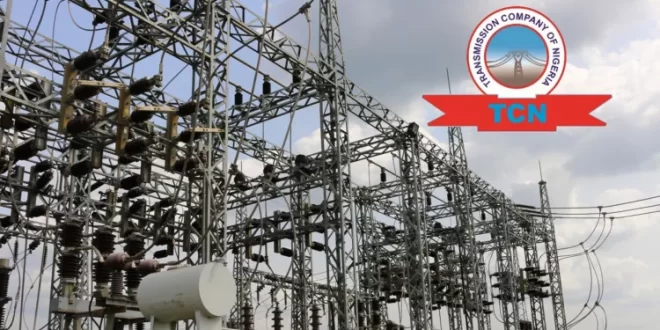The Transmission Company of Nigeria (TCN) has explained that the national power grid collapse on Thursday was a result of ongoing repair works in the power sector.
In a statement, TCN spokesperson, Ndidi Mbah, said the disturbance occurred around 11:29 AM when the national grid experienced a sudden rise in frequency from 50.33Hz to 51.44Hz, triggering the grid failure.
“Recovery efforts began immediately, and the Abuja axis was restored within 28 minutes. However, restoration efforts are still ongoing in other areas,” Mbah stated, although many Nigerians reported they were still without power following the initial grid collapse earlier in the week on Tuesday.
Mbah further explained that the frequency spike was caused by issues at one of TCN’s substations, which had to be shut down to avoid further complications. She also highlighted that TCN is currently undertaking significant repair work on several key transmission lines and substations. This includes work on the 330kV transmission lines along the Shiroro–Mando axis, major upgrades at the Jebba Transmission Substation, and the restoration of the second 330kV Ugwuaji–Apir transmission line.
“We are actively addressing the weaknesses identified in the recent investigative report on previous grid collapses. Our efforts to enhance the stability and resilience of the grid are ongoing, with both technical upgrades and strategic interventions being made based on the committee’s recommendations,” Mbah added.
Despite the repair efforts, she cautioned that some degree of instability in the system is expected to continue until all major work is completed.
“We understand the inconvenience these disruptions have caused and ask for the public’s patience during this period of repair and improvement,” she said. “TCN is committed to ensuring a more reliable electricity supply for Nigeria and will continue to make the necessary improvements to ensure the grid’s long-term stability.”
Mbah also acknowledged the impact of infrastructure damage, including vandalized transmission lines, on the grid’s stability and assured the public that TCN is addressing these issues as well.
Thursday’s grid collapse marked the second time in just two days, following a similar incident on Tuesday, which was the 10th grid failure since the beginning of the year.
As of Thursday morning, power generation had dropped to critically low levels. By 11 AM, only 2,323 MW was being generated by the country’s 20 power plants, a significant drop from the peak generation of 3,743 MW at 10 AM. By 12 PM, power generation had fallen to 0 MW, resulting in widespread outages across the country.
The Ikeja Electricity Distribution Company (IKEDC) confirmed the power outage at 11:29 AM, notifying customers that restoration efforts were underway. “Dear Esteemed Customer, please be informed that we experienced a system outage today, 7th November 2024, at 11:29 AM, affecting supply within our network. Restoration of supply is ongoing in collaboration with our critical stakeholders. Kindly bear with us,” IKEDC stated.
As the nation waits for full restoration, the power sector remains in a state of flux, with ongoing repairs expected to take some time to resolve the persistent grid instability.
 National Telescope national telescope newspaper
National Telescope national telescope newspaper



